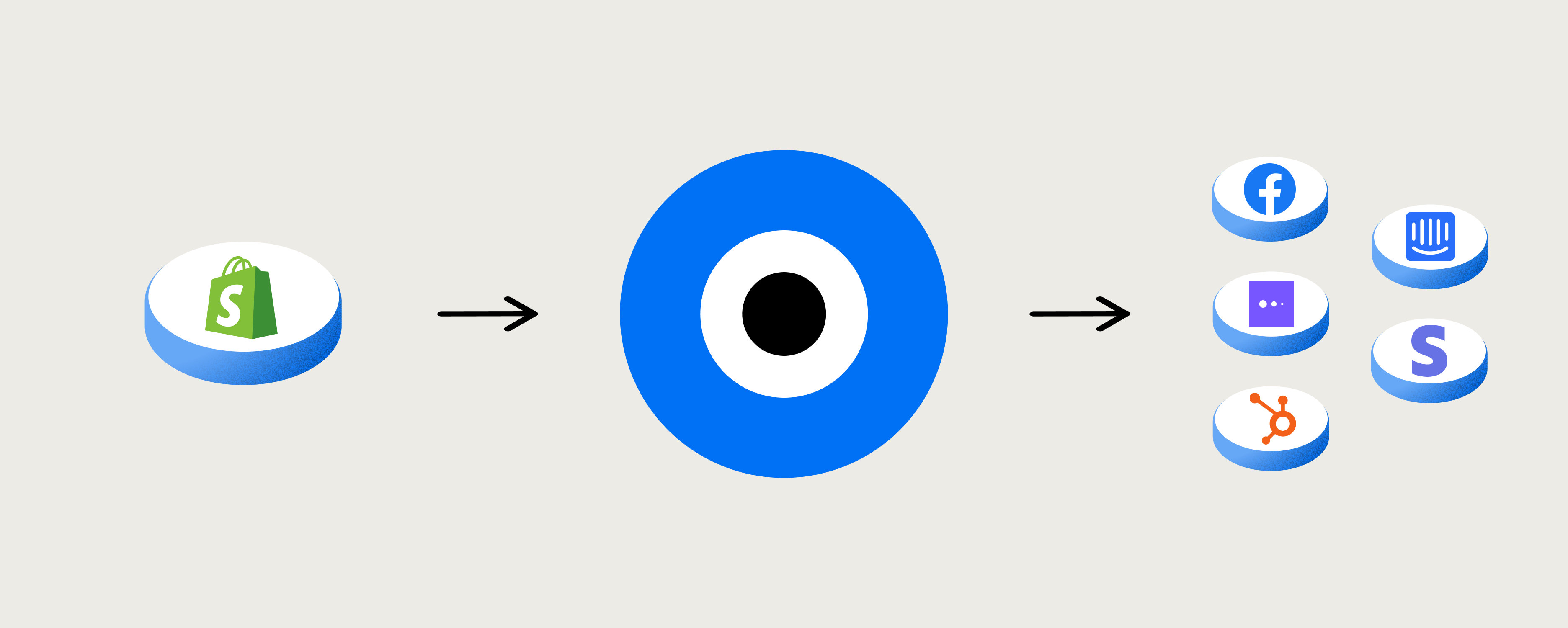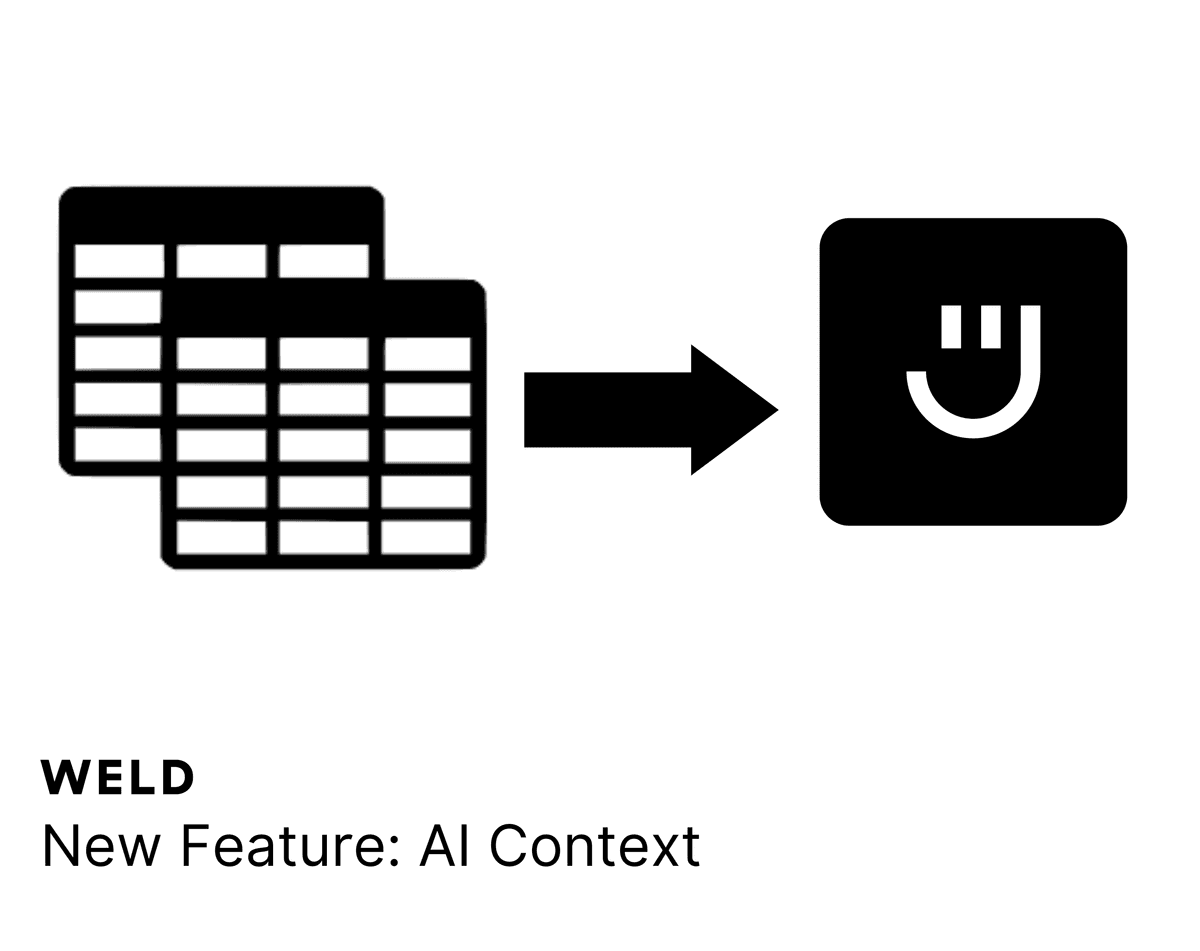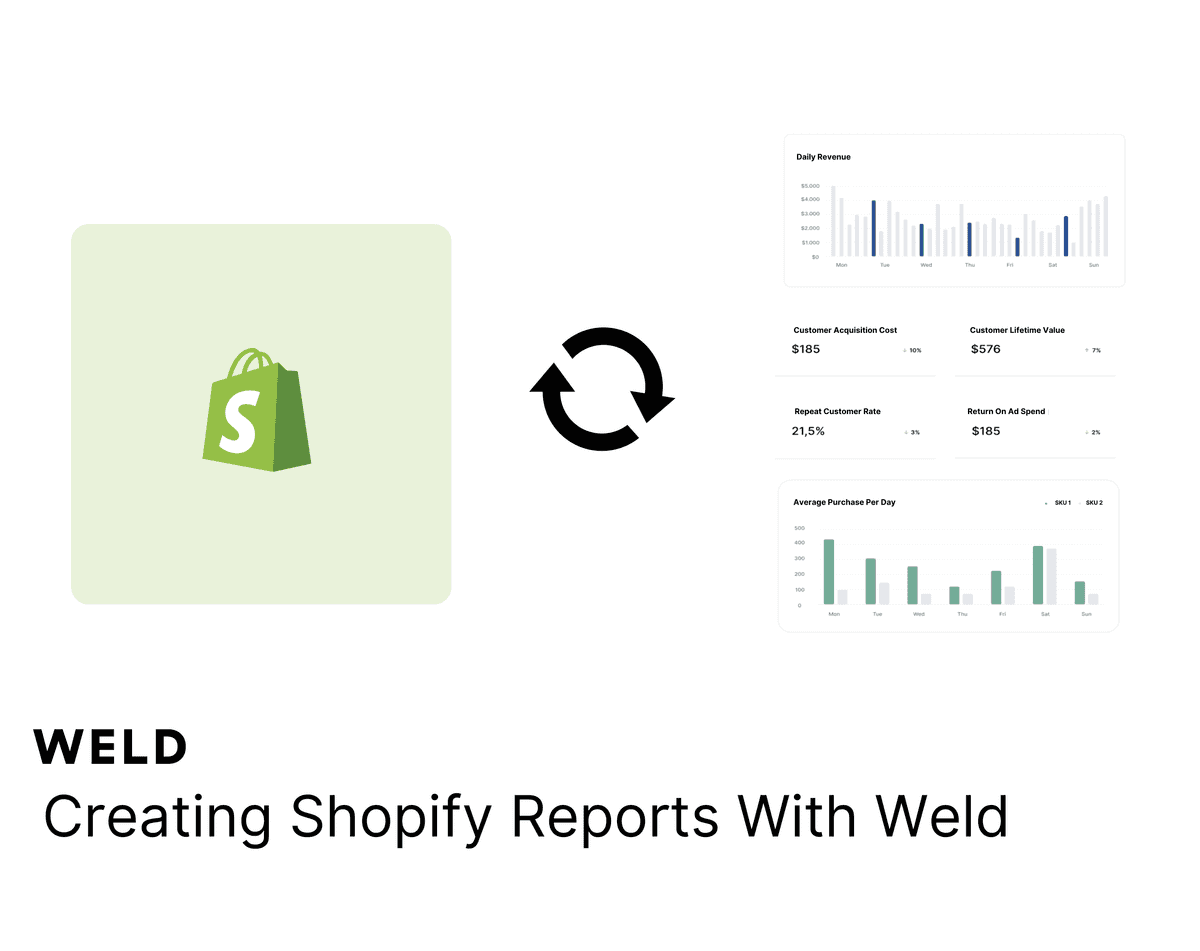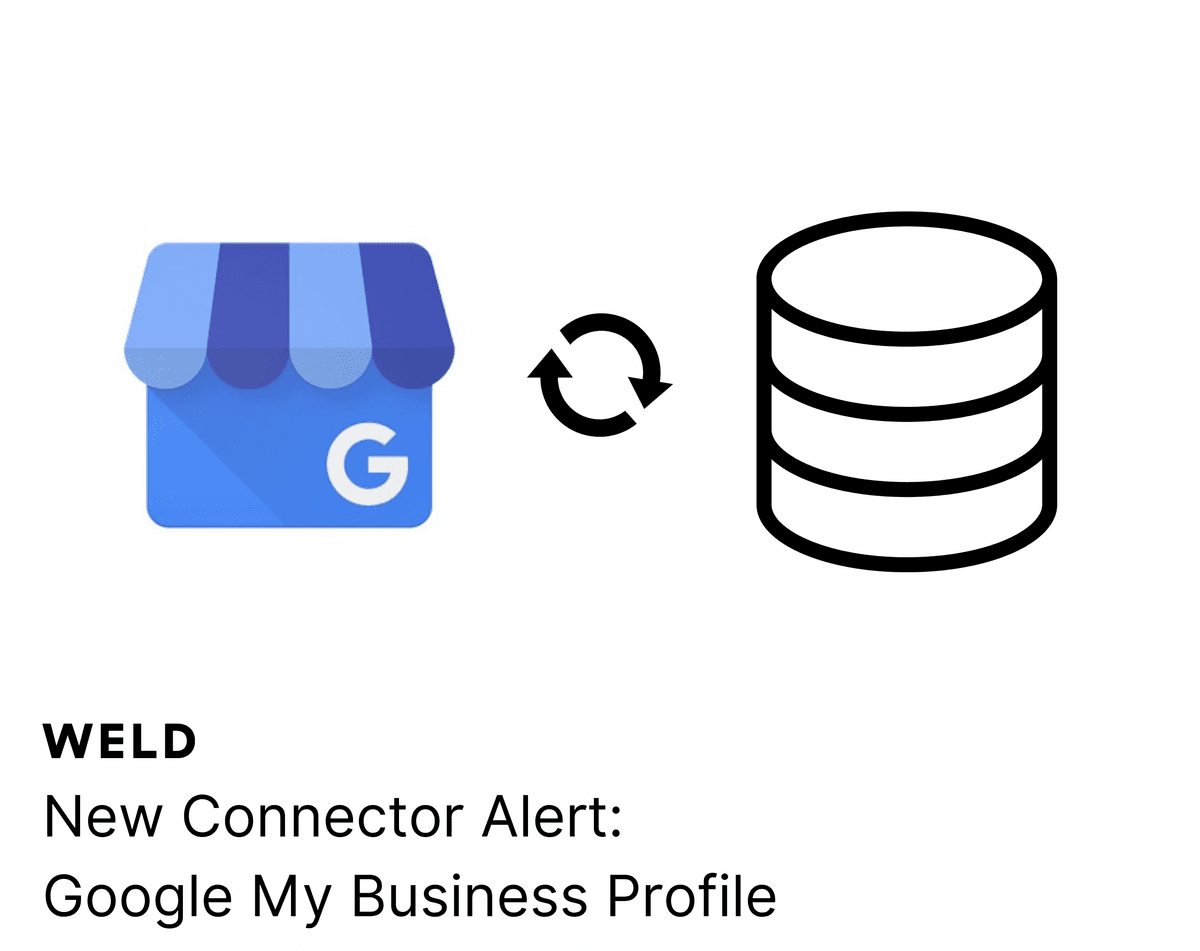
Weld + Shopify: Powering your ecommerce brand with data
Since its humble beginnings in the early 2000s, Shopify has swiftly grown into one of the biggest ecommerce platforms on the market. And with good reason: their consistently customer-centric approach and their ability to anticipate market trends have made them a favourite of merchants big and small. By emulating these values that their client base aspires to, Shopify acts not just as a support system but also a source of inspiration for the ecommerce industry.
So, what’s the key to success in building a behemoth brand and business like Shopify? Data.
Data is how you learn about your customers and develop the products and experiences that will delight them, and keep them coming back. Not only that, data can also give your internal operations a boost, improving your team’s productivity, efficiency, alignment, and output.
This is why the Shopify integration in Weld is so important — and exciting. Syncing your Shopify data into your data warehouse with Weld is the keystone to your data-led business strategy.
What's in the article…
- How Weld's Shopify integration works
- Understand your business like never before
- Build accurate, nuanced customer journeys
- Bring Shopify data into your CRM, Helpdesk
- Becoming data-driven with Weld
How Weld's Shopify integration works
Of the many integrations we’ve built for Weld, the Shopify connector is exceptionally popular. Here’s a brief overview of how you can start extracting data from Shopify with Weld:
- Create your Weld account and start syncing customer data from Shopify into your data warehouse in a matter of minutes (don’t have a data warehouse? Get a managed BigQuery free when you sign up).
- Set up a few more connectors and start extracting data from your other tools like Instagram, TikTok, and Google ads, Intercom, Stripe, and more. Choose from dozens of integrations in the Weld app.
- Use this central source of truth for your data to build better reports, conduct in-depth analysis, and send data back out to your various apps and work tools.

More and more ecommerce companies are becoming data-driven. In fact, some of the fastest-growing ecommerce brands like Son of a Tailor, Tekla Fabrics, Soundboks, Pas Normal Studios, Goodiebox, NØIE, and Roccamore are growing with Weld’s data platform.
Curious how you might use your Shopify data, and the benefits of implementing a solid data infrastructure for your business? Here are 3 use cases for how you can leverage your Shopify data through Weld, and become a more data-driven ecommerce company.
1. Understand your business like never before
With Weld, you can centralize your Shopify data in your warehouse along with data from other sources like your CRM, Helpdesk, advertising platforms, and product databases. This creates a reliable, holistic view of your overall business performance — helping you spot opportunities and double down on what’s working. More specifically, having this single source of truth for your data can help you to:
- Create cross-team alignment by reducing data silos
- Establish clear definitions of your core business metrics
- Track performance trends over time, rather than in snapshots
- Forecast sales, revenue, stock and inventory needs, and more
- See the true outcome of your marketing and advertising spend
Better business performance starts with clear and reliable data. Rather than let your precious customer data remain inert and dispersed across your tech stack, you can bring it all together for a complete diagnostic of your company’s health with Weld.
2. Build accurate, nuanced customer journeys
Another benefit of bringing Shopify data into your warehouse with Weld is crafting accurate, detailed customer journeys. With all of your customer data at your fingertips, you can start to break it down and build out storylines of how people come to discover your brand and purchase your products. You can understand how different segments of your customers behave through cohort analysis, grouping your customer base by factors like:
- Age, gender, location, etc.
- First purchase date
- Total purchase value
- Items purchased
- Promo codes used
Whether it’s tracking specific product launches, monitoring marketing campaigns, or just diving deeper into getting to know your customer base, these insights are invaluable for building your brand. With a data warehouse fueled by Weld, you’ll be able to truly nurture a customer-centric culture at your ecommerce business.
3. Bring Shopify data into your CRM, Helpdesk, and more
Beyond more reliable reporting and in-depth data analysis, you can activate your Shopify data with Weld by syncing it from your warehouse into your various other work tools. Weld’s pre-built pipelines bring your data into Intercom, Hubspot, Stripe, Google Ads, Facebook Ads, and more. So rather than jump around between tools or rely on guesswork, your teams have accurate, up-to-date data directly in the platforms they use the most. You can use this data activation to:
- Craft more personalized customer experiences
- Create hyper-targeted marketing campaigns
- Streamline stock and inventory management
- Automate customer support workflows
When you invest in a modern data stack for your ecommerce company, it opens up a world of possibilities to not just better understand your clientele, but better reach them. Data activation is becoming increasingly popular among retail brands that want to deliver the best possible customer experience.
Becoming data-driven with Weld
Weld’s Shopify integration is one of our most-used connectors, but the power of the complete Weld platform goes above and beyond syncing your Shopify data into your warehouse. Once you’ve brought your data together in your warehouse, the possibilities of what you can do with it are endless. To see for yourself how Weld can help you launch your data operations, sign up for free now.
Continue reading

New Feature - AI Context
Our AI assistant, Ed, now lets you include contexts for your prompt, beyond all the useful features it already had!

How to set up your Shopify metrics in Weld
Learn how to set up your Shopify metrics in Weld and get actionable insights from your data.

New Connector Alert - Google My Business Profile
Looking to optimize your Google My Business Profile reporting? With our new ETL connector, you can effortlessly integrate your Google My Business Profile data with all your other data sources. Create a comprehensive view of your business metrics, enhance your analytics, and make more informed decisions with ease!





